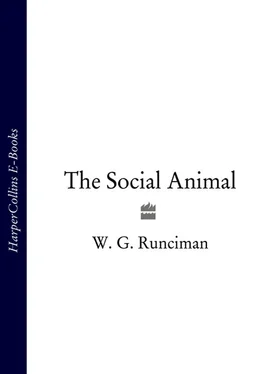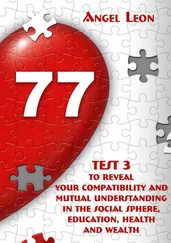Nor is it as if the issue is so difficult to resolve because of the distance in time and space between twentieth-century professors of anthropology and eighteenth-century Hawaiians or Englishmen. So it can be in any sociological enquiry, as much within a single society as between one society and another, or between the same society then and now. Sociologists can and do make mistakes about the roles of fellow-members of their own society no less than about those remote from them. Sometimes, indeed, an observer from a different society will do a better job than a native one. No American sociologist has ever written as perceptively about American society as did the Frenchman Alexis de Tocqueville, whose Democracy in America, published in 1835, remains to this day an inexhaustibly valuable source of insights into American modes of behaviour and thought. No better account of the state of English society at the end of the Napoleonic wars has been written than by the French historian Elie Halévy, whose England in 1815 was published in 1912. For a sociologist to be a fellow-member of the same group, community, institution or society as he or she has chosen to study is neither a necessary nor a sufficient condition of getting it right. What matters is, as in all branches of science, whether the conclusions which the reader is invited to accept can be checked by, and with, other observers of evidence which is there for all to see.
Besides, there’s no point in exaggerating the difficulties. There is no society anywhere in the world whose members’ behaviour is literally incomprehensible to the members of another. You can read writings by philosophers, including Wittgenstein himself, in which they devise imaginary examples of peculiar people who appear to attribute meaning to propositions which violate any rules of meaning known to ‘us’. In an article by the British philosopher John Skorupski, the reader is asked to imagine a society whose members believe that the drawing-pins which they carry about with them in matchboxes are identical with the Empire State Building. 7 But no anthropologist has ever come back from anywhere in the world having found people who believe any such thing, any more than any anthropologist has ever found a people whose language proved impossible to learn. It may be difficult to establish exactly what meaning they attach to certain of their beliefs and the concepts in which they are expressed. But so it is back home. I have never read about an alien society whose religion struck me as any more bizarre than the Christian religion I was ostensibly reared in myself (Genesis, Incarnation, Resurrection, a God who is both Three and One, both Omnipotent and Benevolent, etc.). But I have no more difficulty in conducting meaningful social relationships with fellow-members of my own society who are serious, paid-up Christians than did the British anthropologist E. E. Evans-Pritchard with the Azande of the Northern Sudan, whose beliefs about magic, oracles and witchcraft were totally alien to him. Indeed, Evans-Pritchard is on record as saying that ‘I found it strange at first to live among Azande and listen to native explanations of misfortunes which, to our minds, have apparent causes, but after a while I learned the idiom of their thought and applied notions of witchcraft as spontaneously as themselves in situations where the concept was relevant’; and what is more, ‘I always kept a supply of poison for the use of my household and neighbours and we regulated our affairs in accordance with the oracles’ decisions. I may remark that I found this as satisfactory a way of running my home and affairs as any other I know of.’ 8
So: however difficult it may be to establish what a fellow human being is ‘really’ thinking and therefore doing, it is always possible to identify not only the traits characteristic of an alien culture but the practices defining the roles by which institutions and societies remote in both time and place are constituted. There is, for example, no problem in equating the ‘brothers-in-arms’ whom we find swearing allegiance to each other in late medieval England 9 with the male hetairoi (‘companions’) who associated together with the same common objective of martial glory and lucrative plunder in archaic Greece many centuries earlier and miles away: in status-conscious, warlike, agrarian societies, young men without land of their own or a powerful patron have an evident incentive to join together in this way, whatever may be the other differences in both their cultural and their social environment. Likewise, when the French historian Fernand Braudel, in his magisterial study of the Mediterranean world in the sixteenth century, reports the way in which the Spaniards treated the fellow-members of their society who were of Muslim descent, he himself equates it with the treatment of blacks by poor whites in the southern states of America; and there is no difficulty in identifying cases from a wide range of places and times where a dominant ethnic or religious group discriminates against a subordinate one in the same immediately recognizable way. 10
No less easy to find are cases where the same pattern of social behaviour can be observed in two different societies but with a difference in the function which it performs in each. If you look at ancient Roman society during its expansion by conquest in the first and second centuries BC, you will find free men fighting in the legions and slaves cultivating the large agricultural estates; but if you look at some no less warlike Islamic societies of the Middle East a few centuries later, you will find free men cultivating the land and armies made up of slaves. This, admittedly, gives scope for some unproductive argument over the precise definition of ‘slavery’. Is the role of a slave soldier in an Islamic infantry regiment ‘really’ to be equated with that of a purchased chattel-slave in a Roman chain-gang? But, as always with such comparisons, the answer is not to quibble about the terms but to look at the practices which define the role. When you do – and the evidence is, in this instance, both abundant and reliable enough for the purpose – you will find that the institutional rules are such as in both cases to deny unequivocally to the ‘slave’ the power over his own person which attaches to the roles of the men who are institutionally defined as ‘free’. And from comparisons like these there emerges the distinction, as important in sociology as in biology, between homologues (similarities of form) and analogues (similarities of function). The Roman slave is the homologue of the Islamic soldier and the analogue of the Islamic cultivator; the Islamic slave is the homologue of the Roman cultivator and the analogue of the Roman soldier. If this prompts you to ask: but what about combining the functions in a single role?, the answer is: yes, there are some of those too. In societies as far apart in time and place as seventh-century T’ang China, medieval Saxony, fourteenth-century Prussia under the ‘Teutonic Knights’, seventeenth-century Sweden, and eighteenth-century Russia you will find ‘farmer-soldier’ roles, in which the practices of smallholding and militia service were combined. And this illustrates another point common to biological and sociological theory: evolution can come about through recombination, as well as mutation, of the units of selection.
Anyone observing a human society, including the observer’s own, will not only be curious about some more than other aspects of the social behaviour of its members, but curious about one level of social behaviour rather than another. If you have chosen to study work-groups in a factory, or schoolchildren in a classroom, or doctors and their patients in a hospital you will be engaging in a different sort of project from what you will be doing if you want to study a society’s institutions as such – its economy, or its type of government, or its form of organized religion. But not totally different. You can’t study groups, however small, without taking account of the institutional context of the behaviour you are studying, and you can’t study institutions, however large, without taking account of the behaviour of individual incumbents of specific roles. The leading British sociologist David Lockwood pointed out in an influential article published in 1964 that ‘system’ integration – i.e., stability in the relations between institutions – is quite different from ‘social’ integration – i.e., stability in the relations between groups. 11 You may very well find that in the society you are studying there is much more of one than of the other: in societies as far apart as, for example, nineteenth-century Haiti and Egypt under the Mamluks, consistently high levels of inter-group hostility and violence were maintained within a largely unchanged set of economic, ideological and political institutions. 12 But you can’t prise the two apart. You are always looking at the behaviour of people in roles; and there is not, and never will be, a society in which it is impossible to identify those roles or to trace their relations to each other at both the group and the institutional level.
Читать дальше




![О Генри - Социальный треугольник [The Social Triangle]](/books/405340/o-genri-socialnyj-treugolnik-the-social-triangl-thumb.webp)







